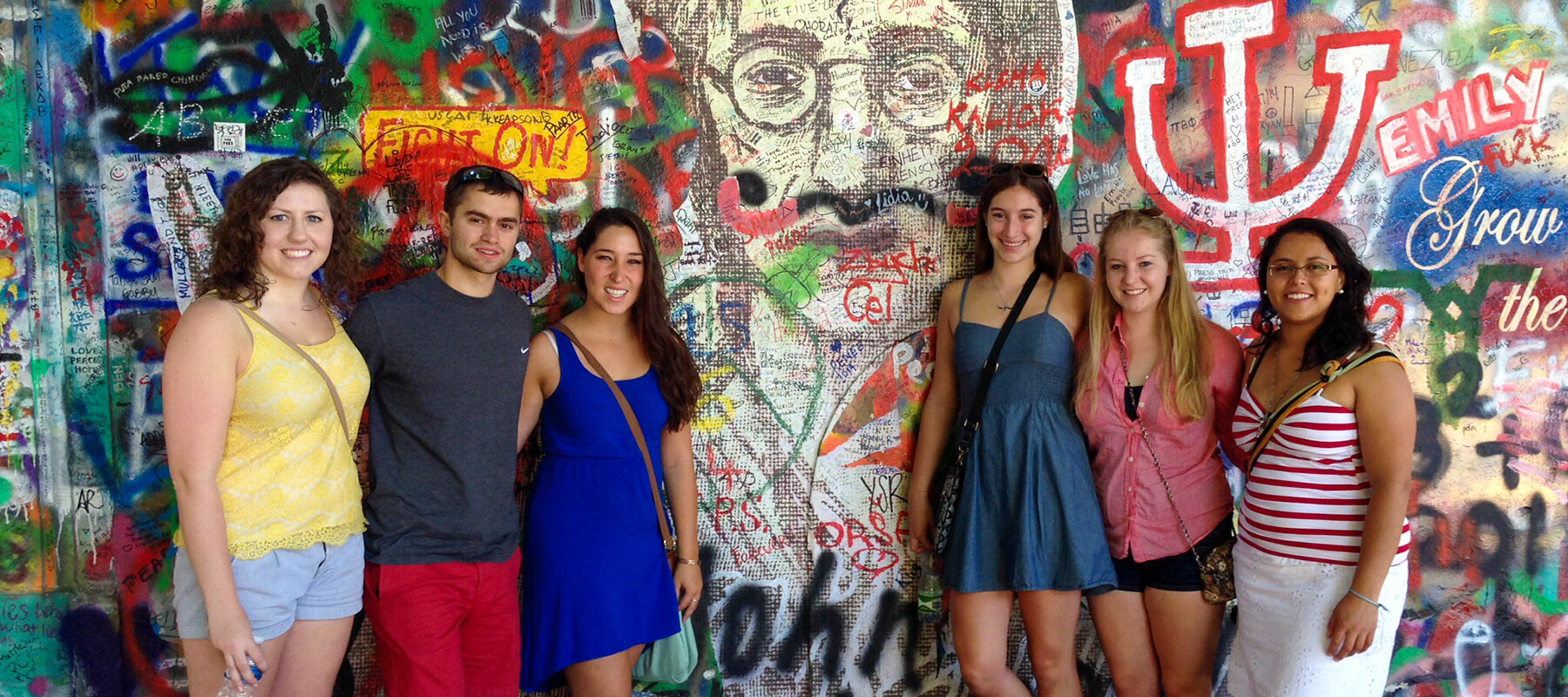Kevin Basek ’14, ’15G considered himself a mathematical, numbers-oriented person. But his decision to branch outside of his comfort zone and travel to Europe through the Iacocca International Internship Program Lehigh presented him with a new cultural outlook.
Basek was one of six Iacocca student interns who traveled to Prague, Czech Republic, in 2014 as part of a faculty-led internship, Lehigh’s Campaign for Social Inclusion, with Christine Novak, who was a professor of practice in school psychology at the time.
Basek studied mathematics during his undergraduate career and then pursued a master’s degree at Lehigh in economics. The Iacocca internship opportunity, which he completed between the two programs, allowed his ability to calculate to make a difference on a societal level.
Novak mentored students from a variety of majors in the small group of interns who accompanied her to Prague, Basek said. As a result, she introduced Basek to a more “qualitative approach” to global issues.
“I remember the first time we had one of our earliest discussions, [which] were about me not understanding psychology, not understanding her world at all,” Basek said. “And she explained all that, and now these days, I am very aware of psychology and am highly interested in it…I remember that conversation very well, where she opened my eyes to a different view of the world.”
Basek and the other interns studied the integration of a marginalized group, the Roma people, into Czech society. The Roma people are historically nomads, Basek said, and therefore face social and economic exclusion within the country. Economic hardships for the hundreds of Roma communities located outside of Prague mean that parents have to choose between putting food on the table or providing their children transport to receive an education.
“A big part of being a Romani person who can’t integrate into society is that [they] have no access to banking,” Basek explained. “You're kind of struggling financially just because you can't integrate [into] the population.”
To grasp the context and circumstance of the stigmatized people, Basek and his fellow interns learned directly through immediate contact with the community. Students collaborated with three non-governmental organizations to engage in networking, research grant availability and address factors that affect ostracization of the Roma people from the Czech economy and society.
Basek said Novak “really built the bridge” between the interns and the Roma people, since she had facilitated the program for three to four years prior to Basek’s experience, and had connections with the local embassy.
“I had very limited knowledge,” Basek said. “Thanks to [Novak], I really got to understand the situation so much better. As a professor, she had the ability to teach and build out and put together a program that allowed us to pick up that information, understand the situation and try to help.”
Novak simply provided a “guardrail” for students’ independent internship research, Basek said, giving feedback and allowing students to take their work in the direction of their choice.
Basek said this was a huge step in his personal growth, as well, to step outside of his comfort zone and take on the internship because it was his first time leaving the U.S.
“Ultimately, the success of the program is about giving students these opportunities to make change in the world,” Basek said.
There is a difference, Basek said, between traveling and working abroad alone versus interacting with a group. As a student, Basek found the small-group internship to be the ideal situation. He said he learned from the other students and appreciated the feeling of camaraderie.
“It was a small enough group that we were almost like a family, because we've spent all of our time together in direct relationships with every person within the group,” Basek said. “Really a very manageable size.”
Basek credits the program for encouraging him to seek more travel in his later career, and even reside outside of the U.S. He now works for American banks in Paris with his wife of almost two years, whom he met abroad in London years ago.
“And given my previous experiences at Lehigh really, [I had] the comfort to leave America and actually take up the international lifestyle,” Basek said.
